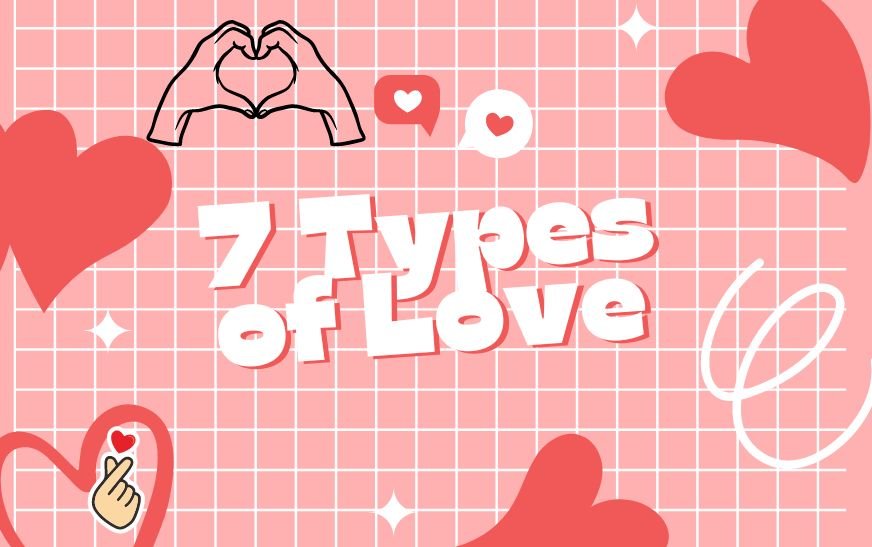Introduction
Love is a multifaceted and intricate emotion that touches every aspect of human life. It’s a powerful force that can bring immense joy and deep connection, yet it can also be a source of profound pain and confusion. To navigate the complexities of love, it’s crucial to understand its various forms. Knowing which type of love you’re experiencing can enhance your relationships and provide clarity in your emotional life Here Is type of love.
What is Love?
Love, in its essence, is an intense feeling of deep affection. It’s a universal concept that transcends cultural, geographical, and philosophical boundaries. From ancient Greek philosophers to modern psychologists, love has been explored and dissected, leading to the identification of different types. Each type of love carries unique characteristics and plays a distinct role in human relationships.
Eros: Romantic Love
Eros is the passionate, intense form of love that most people think of first. Named after the Greek god of love and desire, Eros is characterized by physical attraction and romantic longing. It’s the spark that ignites relationships, often leading to deep emotional and physical connections. Eros is not just about physical intimacy but also the emotional bond that comes from a romantic relationship.
Recognizing Eros in your life is usually straightforward. It’s the butterflies in your stomach, the excitement of being with someone, and the deep desire to know them intimately. However, while Eros can be exhilarating, it’s also often the most fleeting, requiring effort to sustain over time.
Philia: Friendship Love
Philia, or friendship love, is the bond that forms between friends. It’s characterized by mutual respect, shared interests, and a deep sense of camaraderie. Unlike Eros, Philia is not based on physical attraction but on a deep connection and understanding between individuals.
The importance of Philia cannot be overstated. Friendships provide emotional support, reduce stress, and contribute significantly to overall happiness. To nurture Philia, invest time in your friends, show appreciation, and be there during both good and bad times.
Storge: Familial Love
Storge is the love shared among family members. It’s a natural, instinctual affection often rooted in familiarity and dependency. Storge is seen in the bonds between parents and children, siblings, and other close family members.
This type of love is crucial for a supportive and stable family environment. Strengthening Storge involves spending quality time together, communicating openly, and providing unconditional support and love.
Agape: Unconditional Love
Agape is often considered the highest form of love. It is selfless, unconditional, and altruistic. Agape love is about giving without expecting anything in return, and it’s often associated with spiritual or religious love.
Agape can be seen in acts of kindness and compassion towards others, regardless of their relationship to you. It’s the love that drives people to help strangers, support charitable causes, and show compassion to those in need.
Ludus: Playful Love
Ludus is the playful, flirtatious kind of love. It’s the excitement and joy found in the early stages of a relationship, often characterized by teasing, laughter, and fun. Ludus keeps the spark alive in romantic relationships by maintaining a sense of playfulness and spontaneity.
To recognize Ludus, think about the lighthearted moments in your relationships. Maintaining Ludus means continuing to find joy in your partner’s company, flirting, and keeping things fun and exciting.
Pragma: Practical Love
Pragma is the mature, practical love that develops over time. It’s about making compromises, showing patience, and working together to build a lasting relationship. Unlike the intense passion of Eros, Pragma is about deep understanding and long-term commitment.
Building Pragma involves mutual respect, shared goals, and a willingness to work through challenges together. It’s the kind of love that keeps couples together through thick and thin.
Philautia: Self Love
Philautia is the love you have for yourself. It’s about recognizing your worth, taking care of your own needs, and maintaining a healthy level of self-respect. Self-love is essential for overall well-being and is the foundation for all other types of love.
Cultivating Philautia involves self-care practices, setting boundaries, and nurturing your physical, emotional, and mental health. A strong sense of self-love can improve your relationships with others and enhance your ability to give and receive love.
Combination of Love Types
It’s common to experience a combination of these love types in your relationships. For example, a romantic relationship might start with Eros and evolve into a mix of Ludus, Pragma, and even Philia. Understanding how these types of love overlap can provide a deeper insight into your relationships.
Identifying Your Type of Love
To identify which type of love you’re experiencing, reflect on your feelings and behaviors in your relationships. Are you driven by passion (Eros), camaraderie (Philia), or a sense of duty (Pragma)? Self-assessment and honest reflection can help you understand your primary type of love and how it influences your interactions.
The Evolution of Love
Love is not static; it evolves over time. The type of love you experience can change as you grow and your relationships mature. Being adaptable and open to these changes can help you navigate the different phases of love.
The Impact of Love on Mental Health
Love has a profound impact on mental health. Positive, supportive relationships can reduce stress, increase happiness, and improve overall well-being. Conversely, the absence of love or being in toxic relationships can lead to mental health challenges. Understanding and fostering healthy types of love can significantly benefit your mental health.
Love in Modern Society
In today’s fast-paced, technology-driven world, the dynamics of love are changing. Social media, dating apps, and changing societal norms have all influenced how we experience and perceive love. Despite these changes, the fundamental types of love remain relevant, offering a framework to understand our emotions and relationships.
Conclusion
Love is a complex and multifaceted emotion that comes in various forms. By understanding the seven types of love—Eros, Philia, Storge, Agape, Ludus, Pragma, and Philautia—you can gain a deeper insight into your relationships and emotional experiences. Embrace the journey of exploring and understanding love in its many forms, and let it enrich your life in countless ways.
FAQs
-
What is the rarest type of love?
- Agape, or unconditional love, is often considered the rarest because it involves selfless giving without expecting anything in return.
-
Can you experience more than one type of love at the same time?
- Yes, it’s common to experience multiple types of love simultaneously, especially in complex relationships where different forms of love overlap.
-
How can I identify if I’m experiencing Agape?
- Agape is characterized by selflessness and compassion. If you find yourself giving and caring for others without expecting anything in return, you might be experiencing Agape.
-
What are the signs of a healthy Pragma relationship?
- Signs of a healthy Pragma relationship include mutual respect, shared goals, effective communication, and a commitment to working through challenges together.
-
How can self-love improve my relationships with others?
- Self-love improves your relationships by helping you set healthy boundaries, understand your worth, and approach interactions with a positive and confident mindset.









